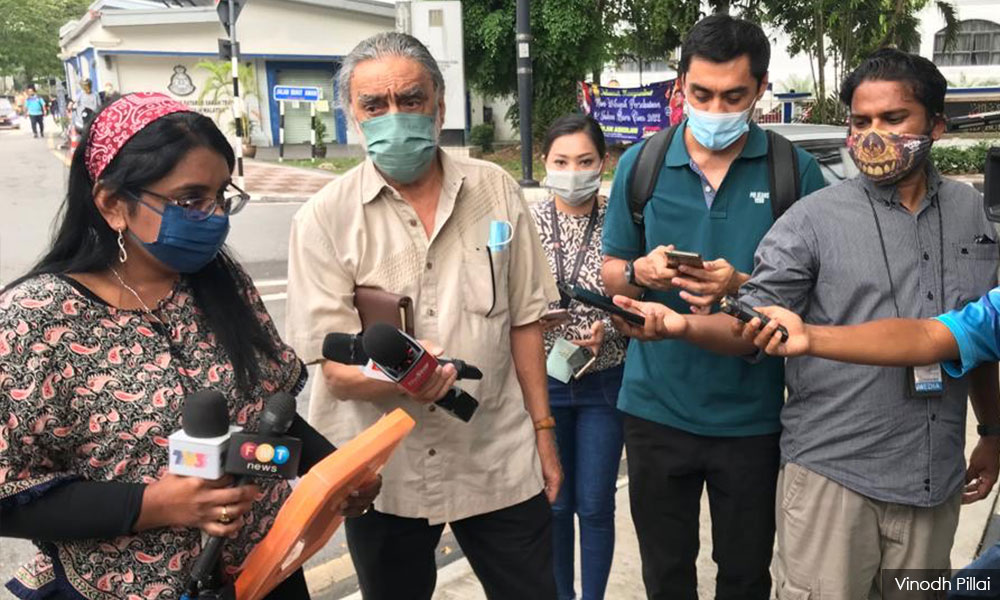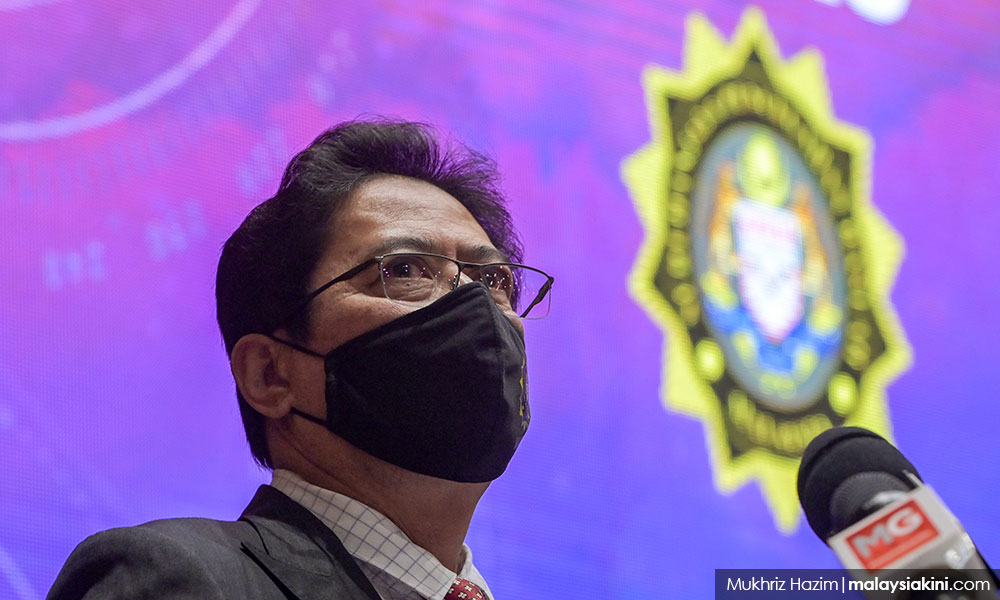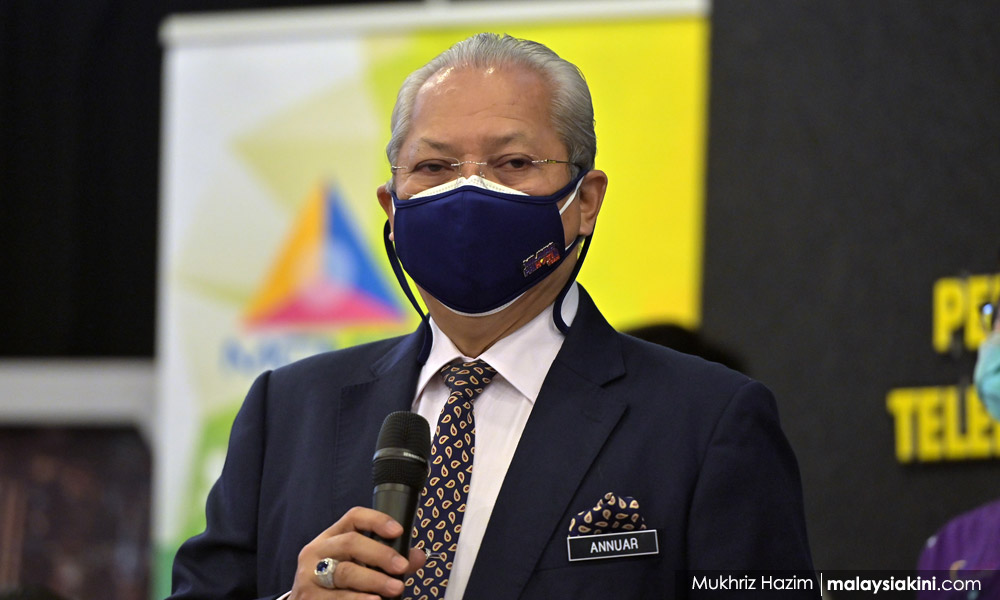Last week, police recorded statements from researcher/writer Lalitha Kunaratnam who published two articles related to the share ownership of MACC head honcho Azam Baki.
The investigations were under Section 233 of the Communications and Multimedia Act and Section 505 of the Penal Code.
Among others, these two clauses address the issue of making statements to incite the community and with intent to annoy, abuse, threaten, or harass any person.
Lalitha’s two-part article - “Business Ties Among MACC Leadership: How Deep Does It Go?” - was published by the Independent News Service (INS) late last year.
Among others, the articles gave details of Azam’s ownership of 1,930,000 shares in Gets Global Berhad (previously KBES Berhad) on April 30, 2015 worth around RM772,000 at the time.
Azam has since filed a defamation suit against Lalitha, who then filed her statement of defence. I do not wish to make comments on the civil suit but wish to address the criminal aspects that the police are investigating.

Let it be said that the information published by Lalitha is in the public domain. She collated them, put them together, and asked legitimate questions that any journalist worth their salt would ask.
If publishing publicly available information constitutes an offence, I have to put up my hands and say: “I have done it several times.”
Over the years, in pursuing leads for articles, I have published shareholding in many companies which included details of several individuals, most of whom have connections to politicians.
Writing on the scandal on the purchase of student accommodation by Mara Holdings five years ago, a series of publicly available documents from the authorities in the Virgin Islands, Australia, and Malaysia were used to substantiate that something was amiss.
In the case of the Port Klang Free Zone (PKFZ) scandal in 2007, information from a report by PriceWaterhouseCoopers (which was commissioned by the Port Klang Authority) was used extensively in supporting articles on over-priced contracts.
They also touched on the guarantees for bonds running into several hundred million provided by the government.
The same could be said of the Youth and Sports Ministry which had spent millions for an elaborate opening ceremony for the 'Women in Sports' carnival including bringing in dancers from Australia.
The list can go on and on and quoting such documents and information therein has not been and shouldn’t be a crime or the subject of investigations.
Let it be categorically said that Lalitha’s efforts caused people to be informed of the business interests of Azam and other public figures.
Azam was caught with a series of half-truths.

First, he said, “I allowed my brother to use my name” (in the purchase of shares). Then after a meeting with officials of the Securities Commission (SC), he declared that “I have been cleared by the SC”.
In a statement, he declared: “I am thankful for the decision of the SC which found that I have not committed any offence.”
True, but the next day the SC declared it found that Azam had “control” over his own trading account and that he had also used it to trade shares.
The question that has to be addressed is: What is the issue with Lalitha’s articles? Of course, it would have annoyed Azam and his coterie of supporters but most right-thinking Malaysians were certainly annoyed with his conduct.
The country’s top graft buster must be a man of integrity and Azam’s lapse of memory (if that is his excuse) certainly caused alarm and prompted groups to organise a rally calling for him to be replaced.
What part was 'factually wrong'?
Last month, MACC senior assistant commissioner Mohan Munusamy made a police report alleging that Lalitha’s articles were factually wrong and implied that senior enforcement officials are corrupt just because of their involvement in business.
But what was factually wrong? Even before a thorough investigation had been completed, how could he have concluded that they were factually wrong?
Is it wrong to state that Azam or anyone owned shares in a public listed company by showing records of share ownership? If so, why are the Companies Commission and other government agencies allowing Joe Public to inspect records of companies?
To date, Azam has yet to clarify anything. People are infuriated because it was his own doing. He has yet to address the issue of breaching civil service regulations which put a cap on shareholdings in public listed companies.
Signs of a crackdown
Finally, are these actions signalling a crackdown on the dissemination of information? On Feb 3, Communications and Multimedia Minister Annuar Musa issued a warning to the media, telling them to abide by journalism ethics and the country's laws.

“Even though the government respects the principle of media freedom, all quarters must be responsible in reporting the news.
“Reports that violate someone’s rights or the law must not be done and should be avoided because it can result in the media facing civil action or legal action under the Penal Code,” Malaysiakini quoted a statement he had issued.
The statement came out of the blue. The minister was certainly not seeking his five minutes of fame and are we going back to the old days when it was taboo for local newspapers to publish the word “1MDB” in any context except favourable to the then government? Is a crackdown on journalists and journalism imminent?
Would they come after me “for causing alarm and annoying” the journalistic fraternity? - Mkini
R NADESWARAN is a veteran journalist and writes on bread-and-butter issues. Comments: citizen.nades22@gmail.com
The views expressed here are those of the author/contributor and do not necessarily represent the views of MMKtT.

No comments:
Post a Comment
Note: Only a member of this blog may post a comment.